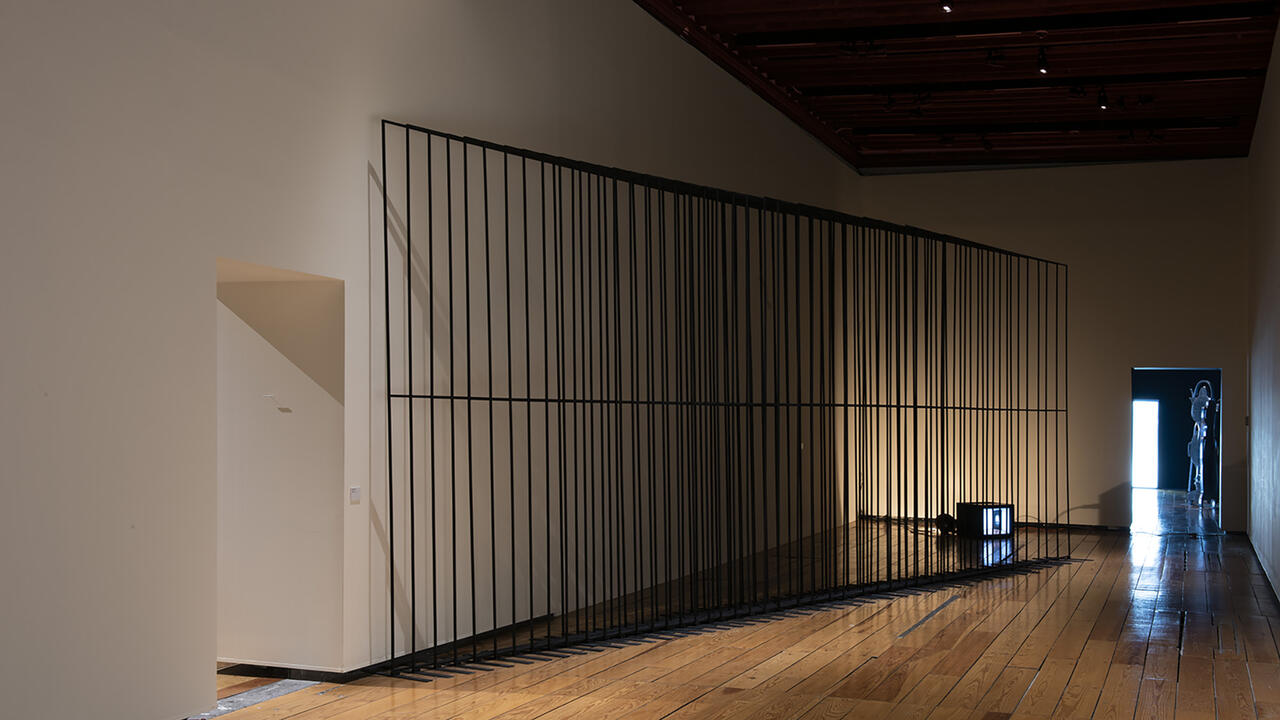Wolfgang Betke
A strange man with 'I am in your picture' on his T-shirt has crept into the family snapshot. Wolfgang Betke has got himself into this totally unpromising situation over 300 times since 1993: whenever he sees a group of people about to take a family photo he joins them. The resulting photographs show a back view of the people being photographed and a frontal view of the photographer taking the picture. Betke himself does not appear in the photographs in the show, but in the pictures the strangers have taken of themselves. At some point he realised that his unauthorised appearance was seldom noticed, and that he was even more rarely asked to go away. Which is why he made the T-shirt with the slogan on it: if people are entirely focused on themselves and their own picture then you have to make a very clear gesture to show them that there is a world elsewhere.
There are a number of important aspects of Betke's photographic project that define the relationship between public and private space. Betke breaks through family boundaries by penetrating a private frame - the family photograph - in effect assuming the persona of the public. He impinges on the protected zone where the family is idealised, and mingles with people 'who were determined to remain strangers' (R. Sennet).
Sennet's sociology of the 'tyranny of intimacy', processed by artistic means, recurs throughout Betke's exhibition series 'Arbeiten am Intimbereich' (Working in the Intimate Sphere), the third part of which is on show in Cologne. Betke is interested in examining the 'cultural techniques' used to produce intimacy, but it emerges that the intimate sphere is never free of a public element. The individual is also unclear of his own status in the so-called intimate sphere, because the 'legitimacy of the self' (Sennet again) is determined by institutions or even by social values.
This is a big subject, and Betke's Autobahnbeichtstuhl (Autobahn Confessional, 1996) an installation and video, presents a picture that is too lucid by half. For this work, he constructed a simple scaffolding made of poles and lightly covered with fabric which could function as a mobile shelter. The video shows him setting it up on a motorway parking area, with the camera circling round the temporary interior space. The aspects of intimacy, power, sin, absolution, mobility, public, transfer etc. remain concepts that are merely evoked. They do not become concrete, because Betke is not aiming at a Situationist confrontation or reactions from passers-by.
This emerges in a strange way in his negative pictures, such as Sven, Ellen, Stefan (all 1996). Here Betke mainly uses photographs that he himself has taken of his own friends (but some are by other photographers). He projects the negatives on to a screen and paints over them. The various stages of preparation, the different processing techniques, the fact that the artist is involved in the portrayal process, putting himself in the way (into the projection) - these are all artistic devices to show how the subject is handled. The oscillation between distance and proximity involved in preparing a private image - an intimate sphere - makes it clear how brittle it is.
Betke's subjects are associated with his activities in other cultural spheres. He is co-editor of the magazine Nummer and has just set up the Pulse Records label, in association with his brother Stefan Betke and gallery owner Markus Schneider. Both the magazine and the recording label are aimed at publicity. The fact that he wants to open up the art system is clearly seen when he combines his art with the kind of electronic music that is to be released on Pulse. This approach is currently booming in various ways in the German art business. For example, museums try to make themselves more attractive by booking hip DJs for young artists' openings. But techno is more likely to be attractive to artists interested in this link as a quick and simple way of organising creative output. The artist Daniel Pflumm, who is also involved with a club and a label, is another example of this. The ethos of getting things done that is rife in the techno field serves as a model for an art scene in thrall to the market - and leads to a certain compulsion about prestige. But this implication, which can actually be positive, is overwhelmed by experiences of champagne-slurping visitors to openings who ask the DJ if he wouldn't mind turning the music down a bit. Betke and others need to put in some work on the crossover.














